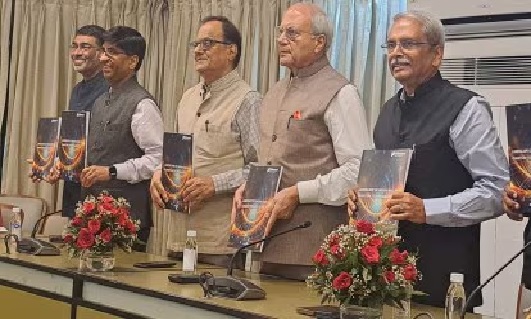India has Large Gap to Bridge in Quantum Capabilities

India's National Quantum Mission, a bold initiative with an allocation of ₹6,000 crore (approximately $0.75 billion) over five years, is a significant step towards developing cutting-edge technologies. However, the journey to match global leaders in quantum capabilities, such as the United States and China, is fraught with challenges. A recent assessment by Itihaasa, a non-profit organization that studies the evolution of technology in India, highlights the considerable gap India needs to bridge to compete on the global stage.
Quantum technologies, which leverage the unique properties of sub-atomic particles like electrons, promise to revolutionize various fields. These technologies include quantum computing, communications, cryptography, cybersecurity, and healthcare. Unlike classical systems, quantum technologies can perform tasks that traditional computers, no matter how powerful, cannot achieve within a reasonable timeframe. This potential disruption underscores the importance of India's investment in this area.
Despite being one of only 17 countries with a dedicated government program for quantum research and one of 12 with committed investments, India's funding pales compared to other nations. China, for instance, has earmarked a staggering $15 billion for quantum technology development, while the United Kingdom, the United States, Germany, and South Korea have committed $4.3 billion, $3.75 billion, $3.3 billion, and $2.35 billion, respectively.
The gap is not just financial. India lags significantly behind in terms of patents and publications in top journals related to quantum technologies. However, the country's efforts are commendable, given its relatively recent focus on this domain. The assessment report by Itihaasa reveals that around 110-145 Indian researchers are working at the principal investigator level in major laboratories and institutions, with additional support from post-doctoral fellows and PhD students. This workforce is crucial for advancing India's quantum capabilities.
India's educational system also produces a significant number of graduates in fields related to quantum technologies, such as biochemistry, chemistry, physics, electronics, chemical engineering, mathematics, and statistics. More than 82,000 students graduate annually in these subjects, a number surpassed only by the European Union as a whole. However, these graduates require specialized training to become relevant in the quantum technology workforce.
India's National Quantum Mission focuses on four key areas: quantum computing, communications, sensors and metrology, and materials. Abhay Karandikar, Secretary of the Department of Science and Technology, believes that India has a realistic chance of becoming a global leader in quantum communications and sensing within five years. He points out that India already has advanced capabilities and a few start-ups making significant progress in these fields. However, quantum computing and other technologies will require much more effort.
Principal Scientific Advisor Ajay Sood remains optimistic, stating that the gap between India and leading countries is bridgeable. According to him, India is only a few years behind in some areas, and at par with the best in others. He emphasizes the need for sustained hard work in the coming years, as the benefits of these technologies will be transformative.
To maximize the potential of India's National Quantum Mission, the assessment report recommends exploring the possibility of establishing a dedicated science and technology cadre for each identified area, similar to those in the space and nuclear sectors. Such a move could provide the focused training and resources needed to accelerate progress.
In conclusion, while India has made commendable strides in launching its National Quantum Mission, the road ahead requires significant effort and investment. By leveraging its existing capabilities and focusing on targeted training and development, India can aspire to bridge the gap and join the ranks of global leaders in quantum technology.


